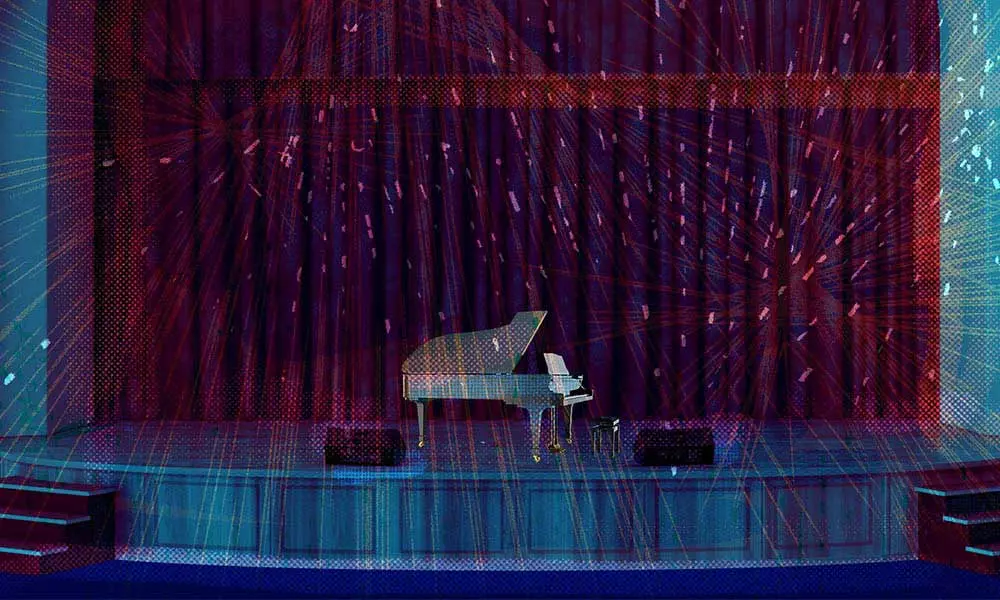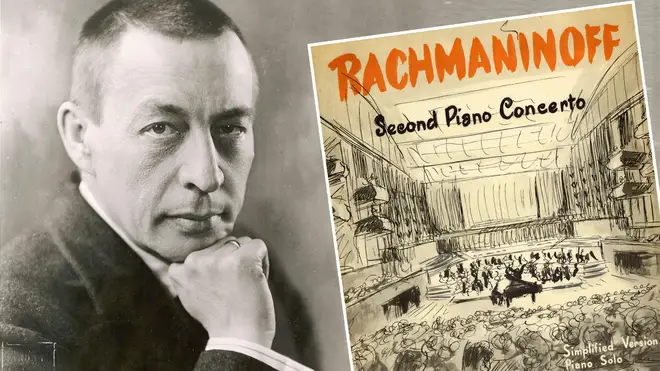Some of the best piano concertos include works by Beethoven, Rachmaninoff, and Mozart. Tchaikovsky, Chopin, and Grieg also created masterpieces in this genre.
Exploring the heights of classical music, piano concertos stand as towering achievements combining orchestral breadth with virtuosic pianism. These compositions offer rich dialogues between the soloist and ensemble, crafting narratives that range from the exuberantly dramatic to the deeply introspective.
Beethoven’s Piano Concerto No. 5 “Emperor” delivers a heroic and powerful statement, while Rachmaninoff’s Piano Concerto No. 2 encapsulates lush romanticism with its sweeping melodies. Mozart’s Piano Concertos, particularly No. 21 and 23, shine with classical grace and intricate beauty. Tchaikovsky’s Piano Concerto No. 1 is famed for its opening chords and passionate themes, whereas Chopin’s concertos are admired for their poetic expression. Grieg’s Piano Concerto in A Minor is beloved for its nationalistic flavor and memorable tunes. These concertos not only challenge the pianists’ technical skills but also demand profound emotional expression, offering listeners a captivating experience of musical storytelling.

Credit: www.classicfm.com
The Allure Of Piano Concertos
The piano concerto captures hearts with its blend of grandeur and intimacy. It is a musical dialogue between a solo pianist and an orchestra. This rich interplay creates a powerful performance that leaves audiences enchanted. Each concerto tells a story, inviting us into a world of emotion, color, and drama.
Roots In Classical Tradition
The piano concerto has its roots deep in the classical tradition. Great composers like Mozart and Beethoven paved the way. They explored the instrument’s potential in full. Their concertos stand tall as pillars in the classical music repertoire.
- Mozart showcased elegance through his piano concertos.
- Beethoven added depth and vigour, expanding the form.
Piano Concertos: A Symphony Of Complexity
Piano concertos are like symphonies with a starring role. The pianist leads with virtuosic passages, while the orchestra adds depth. Together, they weave a tapestry of sound. These works challenge both performer and listener with their complexity.
| Element | Role |
|---|---|
| Solo Piano | Melodic leadership and virtuous passages |
| Orchestra | Harmonic support and thematic development |
Mozart’s Genius In Concerto Composition
Wolfgang Amadeus Mozart, a name synonymous with the word ‘genius’, reshaped the piano concerto landscape forever. His creations stand as towering monuments in classical music, continually mesmerizing audiences and performers alike. His concertos, brimming with innovative melodies and intricate interplays between soloist and orchestra, have set a gold standard in concerto composition.
Musical Jewel: Piano Concerto No. 21
Among Mozart’s vast concerto repertoire, Piano Concerto No. 21 shines the brightest. Affectionately dubbed “Elvira Madigan,” after the movie which featured its hauntingly beautiful second movement, this concerto captures the essence of Mozart’s mastery. The following highlights encapsulate its magic:
- Dreamy Andante: The second movement’s melody transports listeners to a serene dreamscape.
- Vivacious Allegro: The outer movements burst with life, showcasing Mozart’s playful virtuosity.
- Orchestral Harmony: A perfect balance with the piano creates a sublime duet.
Elegance Defined: Piano Concerto No. 23
Piano Concerto No. 23 is a testament to Mozart’s ability to define elegance through music. This concerto, a favorite among pianists, exudes grace with the following standout features:
- Ales return : majesty is woven into the fabric of this masterpiece, featured prominently in the first movement.
- Expressive Adagio: The heart of the concerto, the Adagio, is poetry in musical form, delicate and profound.
- Ebullient Finale: The joyous final movement reflects Mozart’s spirited and innovative style.
Each of these concertos offers a unique glimpse into Mozart’s genius, leaving an indelible mark on the world of classical music.
Beethoven’s Revolutionary Works
Ludwig van Beethoven, a titan in the world of classical music, revolutionized piano concertos. His creative genius transformed the way musicians and audiences perceive the concerto form. Among his works, the Fourth and Fifth piano concertos are monumental. Each stands out as a testament to Beethoven’s innovation and emotional depth.
Empowerment Through Piano Concerto No. 5Empowerment Through Piano Concerto No. 5
Piano Concerto No. 5, dubbed the “Emperor,” captures the spirit of triumph. Beethoven composed it as his last piano concerto. The piece paints an image of mastery and freedom. It’s a powerful showcase of the piano’s capabilities. Here’s why the “Emperor” concerto remains unparalleled:
- Epic opening: A bold, dramatic entrance by the piano sets the stage.
- Dynamic interplay: The piano dialogues with the orchestra, creating a stark sense of empowerment.
- Lyrical beauty: The second movement unveils a tender, soulful melody that touches the heart.
- Exhilarating finale: The energetic rondo brings the concerto to a thrilling close.
The “Emperor” Concerto breaks new ground, illustrating Beethoven’s mastery in blending virtuosity with expressive storytelling.
The Nuances of Piano Concerto No. 4The Nuances Of Piano Concerto No. 4
Piano Concerto No. 4 stands apart with its subtle complexities. It marks a departure from the forceful “Emperor.” Instead, it explores a more introspective dialogue between piano and orchestra. Let’s delve into what makes the Fourth Concerto exceptional:
- Intimate conversation: The piano weaves a delicate interplay with orchestral voices.
- Innovative structure: Beethoven starts with the piano solo, breaking concert tradition.
- Contrasting characters: The movements range from serene to formidable, showcasing emotional versatility.
- Philosophical depth: It provides a reflective journey, inviting listeners to explore beyond the surface.
Through the Fourth Concerto, Beethoven invites audiences to a world of profound expression, wrapped in nuanced mastery.
Romantic Era’s Rich Contributions
The Romantic Era brought a surge of emotion and individualism to the musical world. This period, stretching roughly from 1780 to 1910, was marked by expressive melodies and dynamic contrasts. Composers crafted piano concertos that continue to resonate deeply with audiences today. Two giants of this era, Chopin and Tchaikovsky, created masterpieces that still stand as defining works of the Romantic piano repertoire.
Chopin’s Contribution To Romantic Pianism
Polish composer Fryderyk Chopin was a virtuoso pianist who poured his soul into the keyboard. His concertos epitomize Romantic pianism, with their intricate melodies and delicate nuances. Here are Chopin’s crowning achievements:
- Piano Concerto No. 1 in E minor, Op. 11 – A journey of poetic lyricism and passionate vigor.
- Piano Concerto No. 2 in F minor, Op. 21 – Blending tender expressiveness with bold drama.
Tchaikovsky’s Melodic Mastery
Russian composer Peter Ilyich Tchaikovsky was known for his melodic gift. His works are a staple of Romantic concertos. They sing with emotion and dance with Russian spirit. Notable contributions include:
- Piano Concerto No. 1 in B-flat minor, Op. 23 – A tapestry of grand melodies and virtuosic flair.
- Piano Concerto No. 2 in G major, Op. 44 – A blend of profound lyricism and orchestral brilliance.
- Piano Concerto No. 3 in E-flat major, Op. 75/79 – Though less performed, it offers a glimpse into Tchaikovsky’s evolving style.
Modern Icons And Avant-garde Concertos
The world of piano concertos is rich with modern masterpieces. These works blend daring technique with deep emotion. Each concerto offers a unique voice from the 20th century. We explore iconic composers who shaped this era. Their concertos continue to challenge and enchant pianists and audiences alike.
Rachmaninoff: The Last of the RomanticsRachmaninoff: The Last Of The Romantics
Sergei Rachmaninoff was a true romantic. His concertos span passion, melancholy, and heroism. They capture the drama of the Romantic era, while hinting at modern complexity. For instance, his Piano Concerto No. 2 remains a favorite. Its lush melodies touch the heart. His Piano Concerto No. 3 demands daring skill. Both pieces showcase Rachmaninoff’s iconic style.
Prokofiev and Shostakovich: Champions of ModernismProkofiev And Shostakovich: Champions Of Modernism
Sergei Prokofiev and Dmitri Shostakovich stood at the forefront of modernism. They crafted music that speaks to soul and society. Prokofiev’s Piano Concerto No. 3 sparkles with wit and energy. Shostakovich’s Piano Concerto No. 2 combines simplicity with depth. These composers revolutionized the concerto. They balanced classical form with new sounds and rhythms.
| Composer | Concerto | Year |
|---|---|---|
| Rachmaninoff | Piano Concerto No. 2 | 1901 |
| Rachmaninoff | Piano Concerto No. 3 | 1909 |
| Prokofiev | Piano Concerto No. 3 | 1921 |
| Shostakovich | Piano Concerto No. 2 | 1957 |
These concertos pushed boundaries. They showcase the piano’s full potential. They are timeless pieces that continue to resonate today. Young pianists still look to Rachmaninoff, Prokofiev, and Shostakovich for inspiration.
- Rachmaninoff’s mastery of melody and form is unmatched.
- Prokofiev brings ironic detachment and percussive modernity.
- Shostakovich offers depth wrapped in deceptive simplicity.

Credit: www.udiscovermusic.com
Discovering Contemporary Masterpieces
The classical music scene thrives with past legends, yet today’s composers create new classics. Bold and innovative piano concertos emerge, catching ears and hearts. This exploration uncovers some of the best. Their notes unfold tales of the modern era.
John Adams’ Grand Pianola Music
A standout piece, John Adams’ “Grand Pianola Music” captures the imagination. Created in the 1980s, this work redefines piano concertos. Its vibrant rhythms blend with orchestral power. Listeners embark on a sonic journey. Adams’ piece is both intricate and accessible. It’s a staple for those who love piano with a twist.
Philip Glass And The Minimalist Movement
Philip Glass pioneers the minimalist approach to music. His piano concertos offer a hypnotic simplicity. Repetitive melodies build complex layers. Glass introduces subtle changes that mesmerize. His music stands out for its trance-like quality. Each note tells a story. Both captivating and cerebral, Glass’s works highlight the beauty in repetition.
- Signature Philip Glass concertos:
- Piano Concerto No. 1 – A dance of light and shadow
- Piano Concerto No. 2 – “After Lewis and Clark”, an Americana journey
- Concerto for Two Pianos – A magnetic, dual-keyboard dialog

Credit: www.classicfm.com
Are Dueling Piano Songs Similar to Piano Concertos in Terms of Musical Quality?
When comparing dueling piano songs to piano concertos in terms of musical quality, it’s important to note the different styles and purposes of each. Dueling piano songs often offer a more entertaining and interactive experience, while piano concertos showcase a more structured and classical approach. For good dueling piano songs suggestions, consider “Great Balls of Fire” or “Piano Man”.
Frequently Asked Questions For Which Are The Best Piano Concertos
What Is Considered The Best Piano Concerto?
The best piano concerto is subjective, often debated by enthusiasts. Tchaikovsky’s Piano Concerto No. 1 and Beethoven’s Piano Concerto No. 5 are frequently praised as leading contenders.
What Is The Most Beautiful Concerto?
Determining the most beautiful concerto is subjective; preferences vary widely. Often cited examples include Tchaikovsky’s Piano Concerto No. 1 and Beethoven’s Violin Concerto. These masterpieces are renowned for their emotional depth and melodic beauty.
What Is The Most Beautiful Piano Piece?
The most beautiful piano piece is subjective, often debated among enthusiasts. Classics like Beethoven’s “Moonlight Sonata” and Debussy’s “Clair de Lune” frequently top lists based on popularity and emotional depth.
What Is The Most Emotional Piano Concerto?
The “Emperor” Concerto by Beethoven is often regarded as highly emotional. Tchaikovsky’s Piano Concerto No. 1 also resonates with deep passion and romantic intensity.
Conclusion
Exploring the best piano concertos offers a thrilling classical journey. From Beethoven’s emotive melodies to Rachmaninoff’s technical prowess, each piece unveils a unique musical narrative. As listeners, our preferences can vary, but the masterpieces discussed stand timeless. So, dive into the world of piano concertos; let their power and grace resonate within you.
